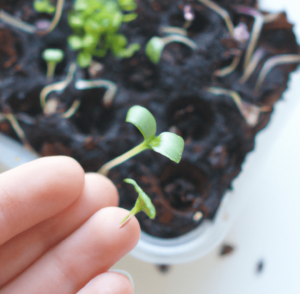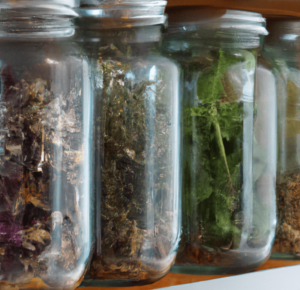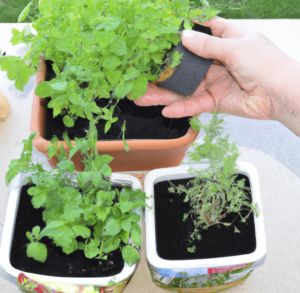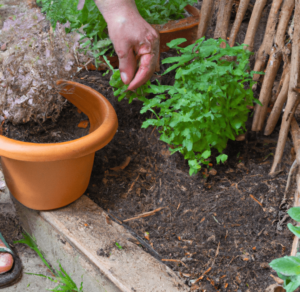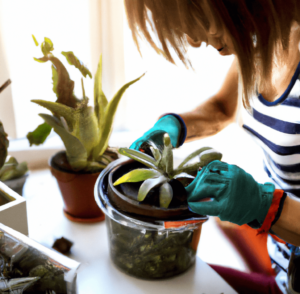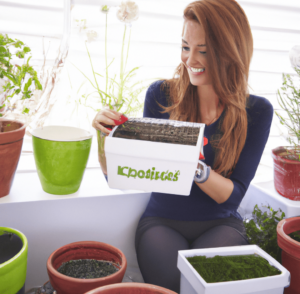Water is an essential component of gardening and plays a crucial role in the health and growth of plants. Without sufficient water, plants can wilt, become stressed, and may ultimately die. On the other hand, providing plants with the right amount of water can help them thrive and create beautiful, healthy gardens. In this article, we will explore the impact of water on gardening, including its importance for plant growth and the various ways it can be used in gardens.
Gardening Tips for a Healthy and Beautiful Garden
Growing a garden can be a rewarding and enjoyable hobby, but it also requires effort and attention to detail. Here are some tips to help you create a healthy and beautiful garden:
- Water regularly: Proper watering is essential for the health of your plants. Make sure to water your garden deeply and consistently, as this will encourage deep root growth and help your plants withstand dry spells.
- Choose the right location: Consider the amount of sunlight, wind, and soil quality when selecting a location for your garden. Different plants have different light and soil requirements, so be sure to research the needs of the specific plants you plan to grow.
- Use mulch: Mulch helps to retain moisture in the soil and suppress weeds. It also helps to regulate soil temperature and improve the overall health of your garden.
- Fertilize: Fertilizing your garden can help provide the nutrients your plants need to thrive. There are many different types of fertilizers available, so be sure to choose one that is appropriate for the plants you are growing.
- Practice pest control: Pests can be a major problem for gardeners. To control pests, try using natural methods such as introducing beneficial insects or using plant-based repellents.
- Pay attention to soil health: Healthy soil is crucial for the success of your garden. Make sure to test the pH of your soil and add amendments as needed to ensure that it is properly balanced.
- Plan ahead: Before planting, make a plan for your garden. Consider the size and location of your garden, as well as the types of plants you want to grow and how they will fit together. This will help you make the most of your space and ensure that your garden is both beautiful and functional.

Plant Growth in Gardens
Gardens provide an ideal environment for plants to grow and thrive. To ensure healthy plant growth, it is important to provide the necessary resources such as water, plant food, and sunlight.
Water is essential for plant growth, as it helps to transport nutrients and oxygen to the plant’s roots. It is important to water plants regularly, but be careful not to over-water, as this can lead to root rot. It is also important to use the right amount of water for each type of plant, as some plants require more or less water than others.
Plant food, or fertilizers, can also be beneficial for plant growth. These products provide plants with the nutrients they need to grow strong and healthy. It is important to choose the right type of plant food for the specific plants being grown, as different plants have different nutrient requirements.
Soil is another important factor in plant growth. It is the foundation for plants, and provides them with the nutrients and support they need to grow. It is important to choose the right type of soil for the plants being grown, as some plants prefer different soil types. It is also important to ensure that the soil is well-drained to prevent root rot.
Drinking water should not be used to water plants, as it often contains chemicals such as chlorine and fluoride that can be harmful to plants. It is best to use distilled or rainwater for watering plants.
Gardening Tips
Gardening is a rewarding hobby that allows you to grow your own plants, herbs, and vegetables, and can also add beauty to your home. Here are some tips to help you get started with gardening:
- Plant: Choose the right plants for your climate and soil type. Research the best time to plant in your area, and follow the recommended spacing and depth guidelines for each plant.
- Water: Proper watering is essential for the health of your plants. Water deeply and consistently, but be careful not to overwater, as this can lead to root rot. Consider using a drip irrigation system or a soaker hose to conserve water and prevent waste.
- Gardens: Create a layout for your garden that maximizes sunlight and allows for good drainage. Consider using raised beds or containers if you don’t have access to a traditional garden plot.
- Soil: Good soil is the foundation of a successful garden. Test your soil to determine its pH level and nutrient content, and add compost or other amendments as needed to improve its structure and fertility.
- Tips: Start small and expand as you gain experience. Keep a gardening journal to track your progress and learn from your successes and failures. Don’t be afraid to ask for help or advice from experienced gardeners or visit your local nursery for additional guidance.
Quality in the Garden
Maintaining the quality of your garden is important for the health and growth of your plants. This includes taking care of your vegetable and fruit plants to ensure they produce high quality produce. There are several factors that can impact the quality of your garden, including soil quality, watering, sunlight, and pests. Properly caring for your garden can help you produce healthy, delicious vegetables and fruit.
Tips for Planting and Maintaining a Garden
- Choose the right location for your garden. Consider factors such as sunlight, soil type, and access to water.
- Plan out your garden before you start planting. Consider the size and layout of the space, as well as the types of plants you want to include.
- Choose the right plants for your garden. Consider the type of soil you have, the amount of sunlight the area receives, and the climate in your region.
- Prepare the soil before planting. This may involve adding compost or other organic matter, as well as adjusting the pH level of the soil.
- Water your plants regularly, but be careful not to overwater. Overwatering can lead to root rot and other problems.
- Fertilize your plants as needed. Use a balanced fertilizer that provides the necessary nutrients for your plants to thrive.
- Protect your plants from pests and diseases. This may involve using natural or chemical controls, or simply removing infected plants from your garden.
- Prune your plants regularly to encourage healthy growth and prevent overcrowding.
- Don’t be afraid to experiment and try new things in your garden. Gardening can be a fun and rewarding hobby, and there is always something new to learn and discover.

Plants in Gardens: Water and Environmental Considerations
Plants play a vital role in gardens, providing beauty and functionality to outdoor spaces. However, proper care and attention must be given to ensure that plants are healthy and thrive in their environment. One important aspect of plant care is watering, as plants need an appropriate amount of moisture to survive. It is important to regularly check the soil moisture levels and water plants as needed, taking into account the specific watering needs of the plant and the environmental conditions in the area.
In addition to watering, it is also important to consider the environmental impact of gardening. Water conservation is an important factor to consider, as drought conditions can affect the availability of water for plants. Using drought-resistant plants, mulching, and practicing efficient watering techniques can help to reduce water usage in the garden.
Another important aspect of gardening with consideration for the environment is the selection of plants. Choosing native plants that are well-suited to the local climate can help to reduce the need for additional watering and fertilizers, as well as provide habitat for local wildlife. In addition, using organic fertilizers and pest control methods can help to reduce the impact on the environment and promote the health of the plants and the surrounding ecosystem.
Overall, incorporating plants into gardens can have numerous benefits, both for the beauty and functionality of outdoor spaces and for the health of the environment. By paying attention to watering and environmental considerations, gardeners can ensure that their plants are healthy and thrive in their surroundings.
Bottom Line: The Impact of Water is Crucial for Gardening
Water is a vital resource for gardening, as it plays a crucial role in the health and growth of plants. Proper watering can help plants thrive and create beautiful, healthy gardens, while insufficient watering can lead to wilting and stress in plants. There are various ways to use water in gardens, including irrigation systems and manual watering, and it is important to consider the specific needs of different plants when determining how much and how often to water. Overall, the impact of water on gardening cannot be overstated, and ensuring that plants have access to enough water is crucial for their success.
If you’re interested in what impact does water have on gardening, you may also be interested in what impact does soil have on gardening and what impact does sun have on gardening.


